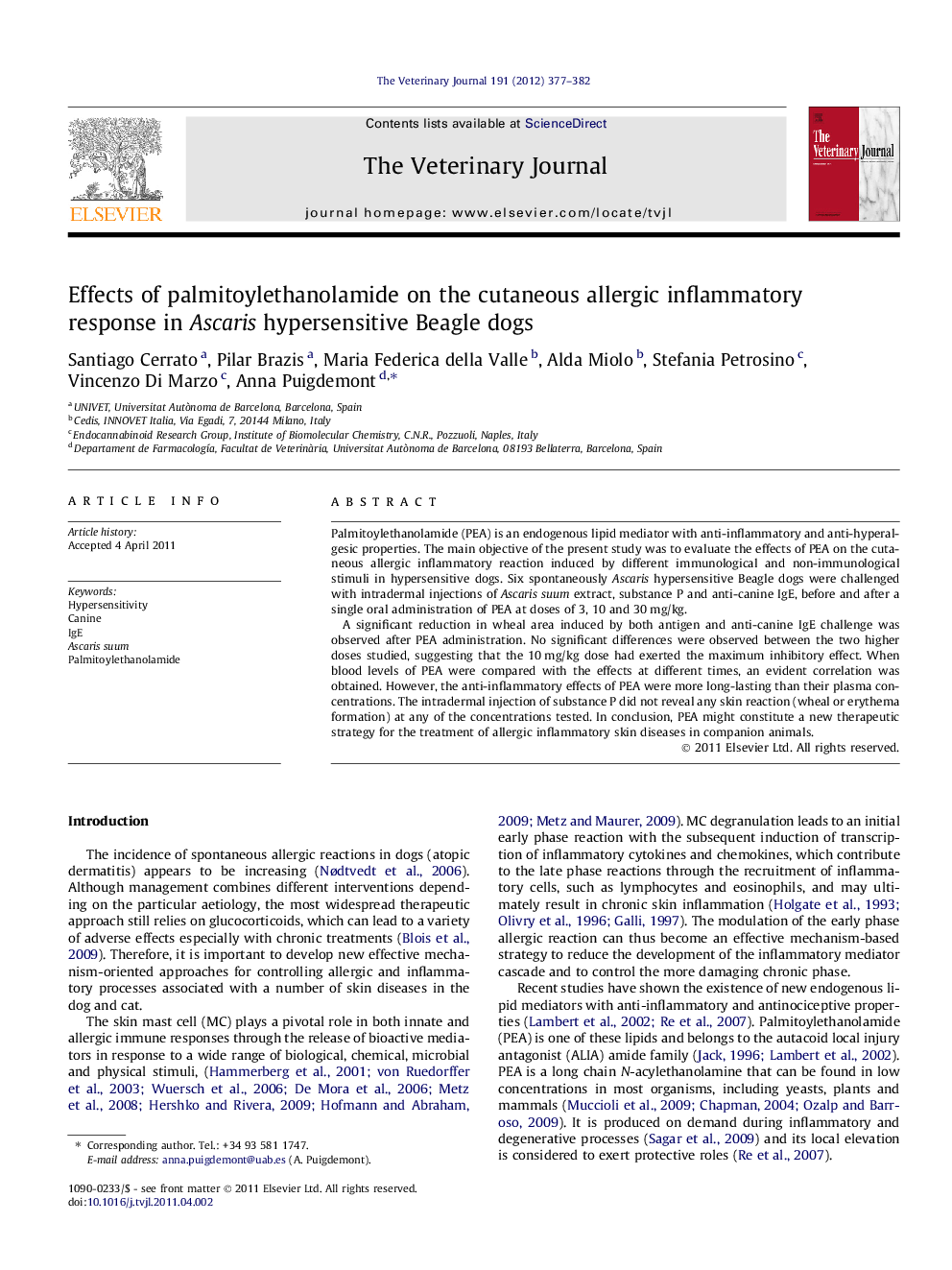| Article ID | Journal | Published Year | Pages | File Type |
|---|---|---|---|---|
| 2464352 | The Veterinary Journal | 2012 | 6 Pages |
Palmitoylethanolamide (PEA) is an endogenous lipid mediator with anti-inflammatory and anti-hyperalgesic properties. The main objective of the present study was to evaluate the effects of PEA on the cutaneous allergic inflammatory reaction induced by different immunological and non-immunological stimuli in hypersensitive dogs. Six spontaneously Ascaris hypersensitive Beagle dogs were challenged with intradermal injections of Ascaris suum extract, substance P and anti-canine IgE, before and after a single oral administration of PEA at doses of 3, 10 and 30 mg/kg.A significant reduction in wheal area induced by both antigen and anti-canine IgE challenge was observed after PEA administration. No significant differences were observed between the two higher doses studied, suggesting that the 10 mg/kg dose had exerted the maximum inhibitory effect. When blood levels of PEA were compared with the effects at different times, an evident correlation was obtained. However, the anti-inflammatory effects of PEA were more long-lasting than their plasma concentrations. The intradermal injection of substance P did not reveal any skin reaction (wheal or erythema formation) at any of the concentrations tested. In conclusion, PEA might constitute a new therapeutic strategy for the treatment of allergic inflammatory skin diseases in companion animals.
